#mousai
Explore tagged Tumblr posts
Text

Erato, Muse of Love Poetry
Albertina • Vienna, Austria
#albertina#erato#the muses#the mousai#muses#muse#mousai#greek goddess#greek gods#greek god#love poetry#love poem#poetry#poem#hellenic polytheism#hellenic worship#hellenic devotion#hellenism#historical art#art history#art details#classical art#art#sculpture#statue#iconography#koree
667 notes
·
View notes
Text
The Nine Muses
This is a very simple post about the Muses in hopes of explaining who they are, what their domains are, and some things they may be able to help with. This post isn't a deep dive by any means - just a simple introduction. Enjoy!
Who are the Muses?
The Muses, or Mousai, are goddesses of inspiration for various creative, scientific, and poetic endeavors. They were believed to also have knowledge of all things that have come to pass, remembering events with clarity that mortals could not hope to have. Their names are Kalliope, Kleio, Ourania, Thaleia, Melpomene, Polymnia, Erato, Euterpe, and Terpsikhore.
In total, there are nine Muses. The god Apollon was often believed to be the leader of the Muses, having a very close connection with them. The goddess Artemis was also paired with them.
Their origin and family varied depending on the source, but the most common notion was that Zeus and Mnemosyne are their parents and that they were born at the foot of Mount Olympus. Some other possible parents are Ouranos and Gaia, Zeus and Plousia, Pieros and Antiope, or even Apollon.
Poets of the past used to invoke the names of the Muses in hopes of gaining inspiration and the ability to gracefully convey their words. When a connection was drawn between them and Apollo, they were also known for their prophetic abilities as well, even being said to teach the art of prophecy.
What are each of their domains?
Kalliope - The eldest of the Muses, she is the goddess of eloquence and epic poetry. She is often considered the mother of Orpheus. She was depicted with a tablet, a scroll, or (later on) a lyre. Her name has been translated to mean "beautiful-voiced".
Kleio - Wise and intelligent, she is named the goddess of history. In art, she was often depicted with an open scroll or chest full of books. Her name was translated as "to make famous".
Ourania - Associated with the stars, she is the goddess of astronomy and astronomical writings. She has been depicted pointing at a celestial globe with a rod, but I wasn't able to find more information on her symbols. Her name means "heavenly one".
Thaleia - A goddess that helps bring joy to the world, she is the goddess of comedy and bucolic poetry. She was also considered to be the mother of the Korybantes (a group of seven demigods). She was often depicted with a comedy mask, a shepherd's staff, or a wreath of ivy. Her name has been translated as "festivity" or "blooming".
Melpomene - Holding a domain more somber than the Muse above, she is the goddess of tragedy. She was named the mother of the Sirens by Apollodorus. She was depicted with a tragedy mask, a sword, a wreath of ivy, or cothurnus boots. Her name likely means "to celebrate with song (and dance)".
Polymnia - With a name meaning "many hymns" or "many praises", it's no surprise that she's the goddess of religious hymns. She was often portrayed in a meditative pose.
Erato - A Muse that needs no introduction, she is the goddess of erotic poetry and mime. She was often portrayed with a lyre. Her name means "lovely" or "beloved".
Euterpe - Likely full of rhymes and reasons, she is the goddess of lyric poetry. She was often depicted with a double flute. Her name likely means "well pleasing" or "giver of much delight".
Terpsikhore - Filled with music, she is the goddess of choral song and dancing. She was often depicted with a lyre and plectrum. Her name has been translated to "delighting in dance".
Kalliope - Speaking presentations, writing essays, script reading, reading/writing informational posts/articles/etc., interpreting poetry, poetry writing/reading, sharing your own poetry, communicating clearly with others, important conversations, coping with conflicts, addressing conflicts, making peace with others.
What are some things they can help with specifically?
***These are merely suggestions.***
Kleio - History exams/tests, studying classics/history, delving into your own history, discovering family history, recalling past events, writing myth retellings or similar, identifying patterns of behavior, releasing the past, learning from the past, finding hope for the future.
Ourania - Studying the stars/space, story-telling, understanding the universe around us, memorizing constellations, finding peace in the night, finding hope in the darkness, creating goals for yourself, "reaching for the stars", holding onto your wishes, finding a sense of direction.
Thaleia - Creating your own joy, finding what makes you happy, performing stand-up comedy, writing any form of comedy, play-writing, healthy positivity, learning to laugh things off, releasing stress/burdens, moving forward, expressing your joy.
Melpomene - Coping with hardships, moving through difficult times, releasing the past, forgiving oneself, coping with past mistakes/regret, healing from difficult events, coping with the "downs" of life, play-writing, telling tragic tales, addressing difficult topics sensitively.
Polymnia - Writing devotional poetry/hymns/songs/etc., growing closer with religion/devotion, inspiration for offerings/devotional acts, coping with religious difficulties, finding comfort/joy in religion, connecting with the divine, religious/spiritual writings, connecting with your practice.
Erato - Love letters, confessing your feelings through writings/songs/etc., connecting with sexuality, writing/reading erotic stories, communicating sexual needs, establishing/discovering sexual boundaries, sex positivity (especially through literature), embracing your sexual interests.
Euterpe - Writing poetry, interpreting poetry, communicating one's emotions, romanticizing life, sharing poetry with others, devotional poetry, expressing one's feelings through writing, processing emotions, finding the "right word" for a piece you're writing.
Terpsikhore - Song-writing, learning to dance, expressing yourself through dance/song, connecting with music, processing feelings with musical aid, instrument playing, choral/instrumental performances, writing a musical, musical theater, finding your voice, embracing who you are, expressing yourself.
418 notes
·
View notes
Text


Three muses complaining to Apollo of the barbarity of men
Bas-relief in plaster by Émile Morlaix (1937)
#apollo#apollon#mousai#muses#Greek mythology#Greek gods#Calliope#Euterpe#Thalia#Melpomene#Erato#Terpsichore#Clio#Polyhymnia#Urania#sculpture#Émile Morlaix
384 notes
·
View notes
Text

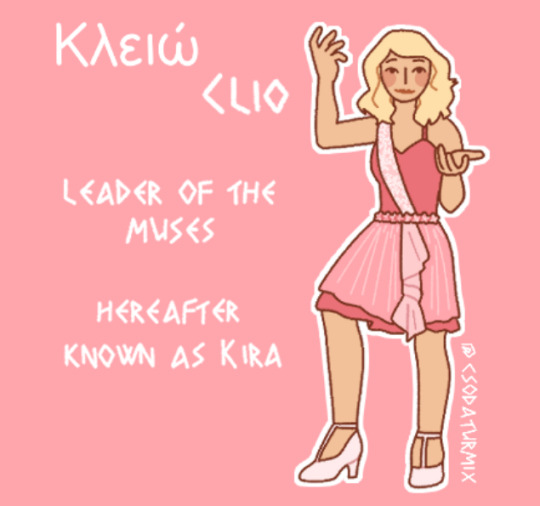
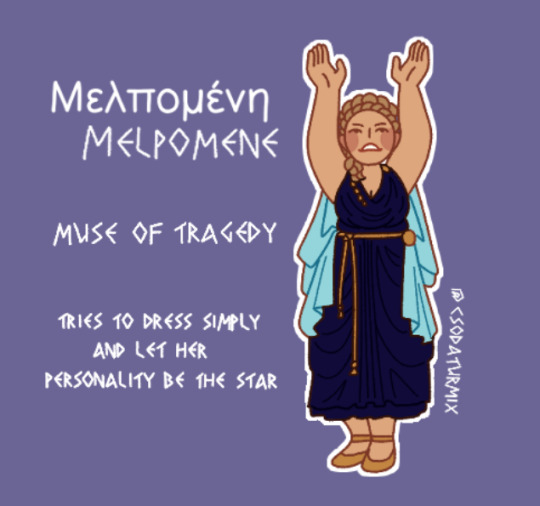


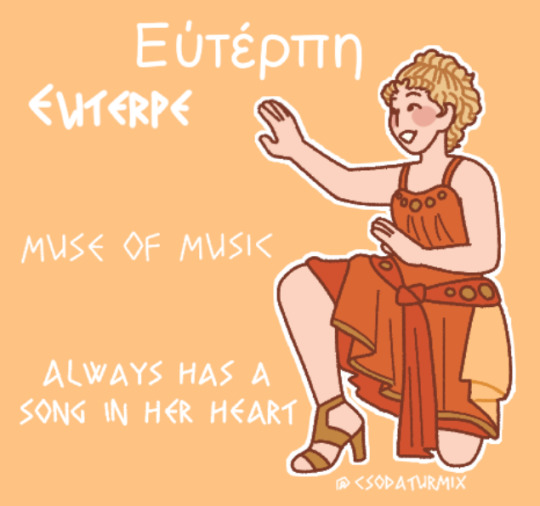



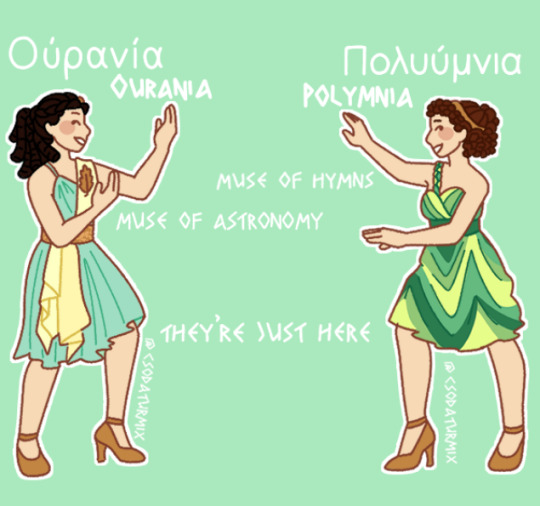
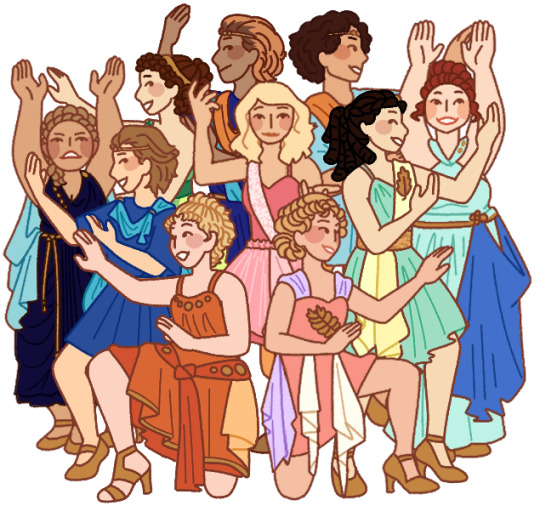
Huzzah!
#the muses#muses#klio#melpomene#calliope#euterpe#erato#terpsichore#thalia#polymnia#polyhymnia#ourania#urania#xanadu#greek mythology#xanadu musical#clio#mousai
326 notes
·
View notes
Text









𝒎𝒆𝒍𝒑𝒐𝒎𝒆𝒏𝒆 ; 𝒈𝒐𝒅𝒅𝒆𝒔𝒔 𝒎𝒖𝒔𝒆 𝒐𝒇 𝒕𝒓𝒂𝒈𝒆𝒅𝒚 🎭🏛
[please reblog or like if you saved]
#melpomene#mousai#nine muses#greek god#greek gods#greek goddess#greek deity#greek god aesthetic#greek god art#greek pantheon#greek pagan#greek paganism#greek polytheist#greek polytheism#greek myth#greek myth aesthetic#greek myth art#greek mythology#greek mythology aesthetic#greek mythology art#hellenism#hellenistic#hellenic paganism#hellenic pagan#hellenic pantheon#hellenic polythiest#hellenic polytheism#hellenic gods#hellenic deities#9muses
34 notes
·
View notes
Text
“The Mousai are always dancing, and the goddesses love to busy themselves with songs and strings. But when they see Apollon beginning to lead the dance, they put their heart into their singing even more than before and send down from Helikon an all-harmonious sound.”
- Simonides, Fragment 578 (from Himerius, Orations)
#apollon#apollo#muses#mousai#calliope#terpsichore#clio#urania#polyhymnia#euterpe#thalia#melpomene#erato#greek gods#Simonides#Himerius
91 notes
·
View notes
Text
My Hymn to the Muses
Since I can apparently write poetry now, I've decided to begin work on a hymnal. It's going to be a long-term project. As is proper, I've begun with the Muses. (I also really could use their help right now.) I was sobbing while writing this, so, that's how I know I'm on the right track.
To the Muses O Muses, from whom all stories flow Like the waters of the Hippocrene, that pours from Helicon’s towering heights onto the sacred planes of Greece; Daughters of Zeus and mothers of song, whose voices sound like chiming bells, heard in the ripples of the stream and the calling of the wind, singing stories older than the many languages of men; Your voices sing within my soul And always have, since I was born.
Urania, who in my youth led me to a sacred stream, and turned my face up to the stars; Calliope, who leads me through the lengthy stories that I tell; Terpsichore, who compels my limbs to express what’s in my heart; Euterpe and Erato, who with their sweet voices, charm my soul; Polyhymnia, who speaks to me now, encouraging me to praise the gods; Clio, she who calls my glance back to the rich lore of the past; Thalia and Melpomene, the witty players on life’s stage, who remind me to enjoy the show, and teach me how to cope with endings.
Pegasus brought me to you, Once, very long ago. And in that time you’ve taught me well How to sing and dance and write, the many arts of lorekeeping. Sisters, now I call to you-- fill me with the voice divine, so that always, always the words will come.
#poetry#my poetry#hymns#hymn to the muses#the muses#the nine muses#mousai#hellenic polytheism#hellenic pagan#helpol#hellenic paganism#hellenic devotion#greek gods and goddesses#hellenism#hellenic worship#hellenic deities#hellenic polythiest#calliope#urania#polyhymnia#euterpe#erato#terpsichore#clio#thalia#melpomene
47 notes
·
View notes
Text
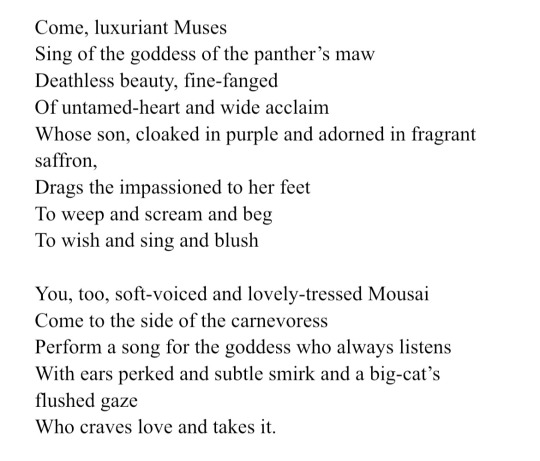
(6 August 2023)
#i did this one at the beach (-:#my poetry#Aphrodite#Aphrodite deity#Mousai#devotional art#helpol#personal#prayer
106 notes
·
View notes
Text
jazzy!! & apollo
hello yall im back on my bs (biscuit soliloquy) with my wonderful oc jazzy and a modern au i came up with when i opened my eyes this morning lol. u can find a little lore on ma blog under the #jazzy tag :3
--
aight so for context a few months ago while deep in the trenches of my greek mythology obsession i made a minor underworld diety oc who goes by kore or jazzy. shes my favourite muffin and i love her.
and after reading one too many apollo fics here lmao i really wanted to explore his domains (which i find endlessly fascinating bc its all my favourite things in one: medicine art literature) and learn more about him as a god via a character study of sorts.
(ive yet to write anything for them lol but when i do it will be great :P)
--
anyway back to the story they are teachers!! bc im currently rethinking my life choices and having fun imagining what my life could have been like things went differently (11/10 recommend. great for the blorbos). babys first midlife crisis at the ripe old age of 21 lol
so without any further ado, them <3
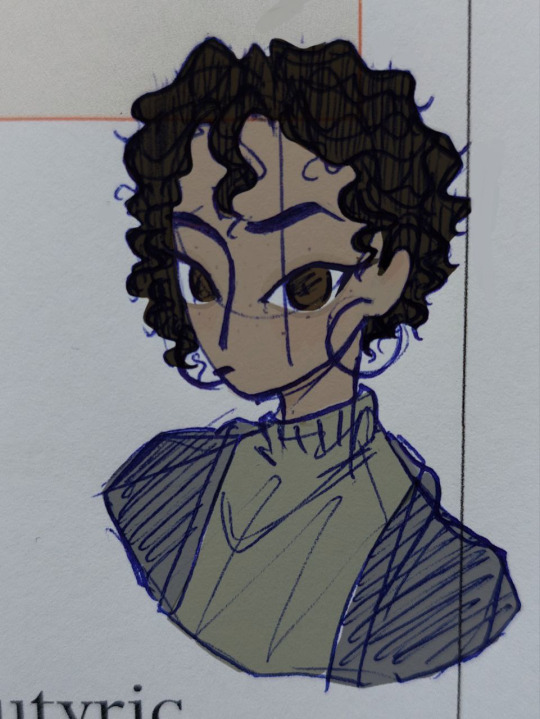
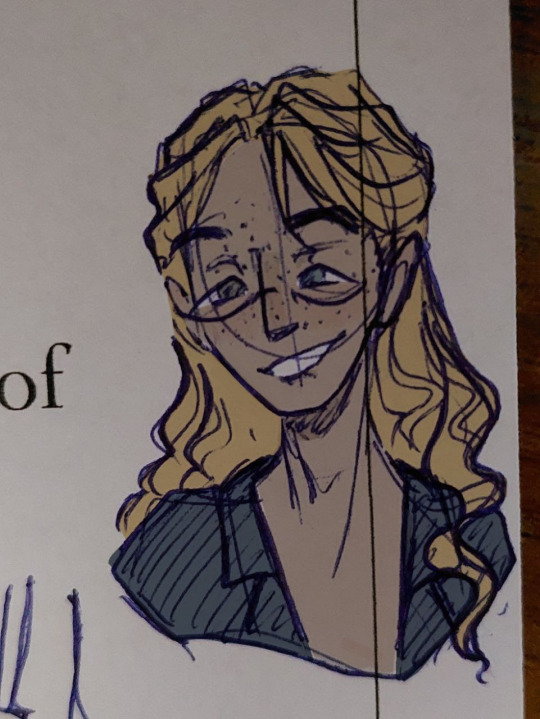
HHHHHHHHHHHHHH MY BABIES
*slaps hands* aight so context and premise:
cant be bothered to come up with alternative names and clever refernces for everyone so theyre keeping their greek names lol.
not everyone in the pantheon will make an appearance, this aint keeping up with the olympians (until it is)
the setting is vaguely british lol bc its where i grew up and am more familiar with the system and the norms. ish
they teach both primary and secondary school students (this afaik doesnt exist in the uk but it does here so yeah. will elaborate later)
greek mythology adjacent at best i regrettably know very little of the mythos and my one and only reference is theoi. i will do better i promise. as soon as i graduate
in the mean time pls feel free to tell me all about ur fave myths and works and recommend stuff :D!!
--
art stuff, character design, notes
apollo has heterochromia :3 dunno if u can see it but his eyes are olive green (right) and a teal (left). representing the suns reach over land and sea. ALSO FRECKLES >:D
my girl jazzy has the most boring brown eyes ever. no pools of honey or flecks of gold. just good ol dirt brown. *foreshadowing*
short curly hair somewhere between brown and black for her, and floofy kraft singles waves for him XD
jazzy is a knitwear gremlin (like urs truly lol), 24/7 turtlenecks cardigans jumpers scarfs all of it. her hands (and extremeties) are always cold bc bad circulation and probably dehydration. shush
palettes are warm and earthy for jazzy (wow im so subtle) and cool celestial for apollo (and artemis hehe)
so thats mostly greens esp olive, brown and beige and a healthy sprinkle of rose. le aesthetic is forest/ gremlincore for my girl
and lots of blues esp navy and shiny silver and gold for chaotic academia sunshine boi (TIL astroacademia is a thing and like wow)
arts and moodboards and quotes in this century trust
jazzy is of average height (which to me is 160cm hhhhh and apollo is taller at 180cm. do ur own math we use metric in this household)
--
finally concept idea, plot if u will, notes and backgorund info too:
the first thing i thought of when i opened my eyes was literally apollo and his nine daughters the muses. let me finish
i wish i was joking lol it instantly gripped me but alas i had to go to uni and so it stayed on hold and i havent studied more that 3 pages bc im thinking about them
and by thinking i mean going over the same scene in my head and not doing somethinguseful like say expanding lore. as one does.
anyway yes we have apollo the girl dad of all time who has 9 wondeful daughters of varying ages from fist year of uni to toddler
still mapping out details like if from same mother or several relationships. idk what im doing pls respect my privacy at this time
apollo has 2 degrees bc its cool af to me (my dad has two masters and its been on my bucket list since. i dont know why i am the way that i am either) one in nursing and another in english literature (and a masters in translation bc i can)
he teaches english and history tho and the art afterschool clubs. yes clubs plural. i am insane and so is he.
jazzy is a biomed graduate and is currently pursuing a masters in forensic toxicology (sucks that i hade organic chem this would be fun to write) so she teaches bio. probably part time idk.
i will get to the details of lore and what theyre like and their work ethics etc but i is tired and id really like to finish some work before bed lol so goodnight for now and enjoy and feel free to ask stuff ig :3
#apollo was supposed to be wearing a suit jacket blazer thing and a turtleneck but my brain crashed lol and this is what i got#i assure u he is very professional & adheres to the dress code#mostly#also i will do what research i can bc i havent been to the uk since 2016 (oh damn) for under a month and before that 2014#so all my memories and stuff are hazy and most importantly through the lens of a very starry eyed child so bear with me lol#but then again im focusing on the lil guys and i doubt ill go beyond describing my local tesco and childhood park lmao#enjoy!#my art#writing#writing stuff#jazzy#apollo#my oc#oc stuff#i am so tired#5 pages to finish if i survive ill write more :3#greek mythology#mousai#the muses#i hate how fast im getting emotionaally invested in this#(i dont but i know me too well)#sure hope i dont retire this to the UFO shelf before the week is out lol#im tired ill tag properyl later#also not prrofread#case in point XD
14 notes
·
View notes
Text
By Polyhymnia's hand I weave my prayer Holiest Muse, may I live to honour the Gods With actions and words
português:
Pela mão de Polímnia Teço minha oração Sacratíssima Musa, possa eu viver para honrar os Deuses Com cada palavra e ação
74 notes
·
View notes
Text
What do you put on an altar for Euterpe I need ideas 🙏
10 notes
·
View notes
Text
Prayer to Djehuty for Artistic Inspiration
Hail and praise onto you, Djehuty, True Scribe of Ma'at!
Oh, Thrice Great of Heka Power, Wise One in Iunu, the Mousa has fled, she prowls a distant land in the form of a lioness!
Bring her back to me, place her on my brow, for I am her father, Ra Horakhety, and I am in need of her.
Render this service to me and I shall make offerings to you on the festivals of the month, the sixth day, the half-month, and all the other festivals appropriate to you, Oh Reckoner of Months, of Days, of Hours.
Bring her to me and you shall receive a thousand loaves of bread, a thousand jugs of beer, a thousand cuts of beef and fowl, and all other things good and pure on which a god lives.
#sharing an originally written prayer in case anyone finds it useful#this is a first experiment in Graeco-Egyptian syncretism#equating the solar eye to The Muses and referencing the distant goddess myth#I specifically call upon Djehuty because I'm a writer#but I think it works well for just general purpose artistic inspiration due to the mythic context#I guess if you're a musician Hathor may work just as well#so that's an option if you want this prayer to be purely Kemetic#kemeticism#djehuty#hellenism#mousai
72 notes
·
View notes
Text
Offering Ideas for the Muses
~ Since I don't see many posts on this topic, I've also included common "general" traditional offerings to the Greek pantheon. I did my best to come up with unique but simple ideas; I wanted to include things that most people could likely offer or do. I hope this list is helpful to someone. ~
Kalliope - Your favorite poetry, poetry books, poetry you wrote, musical instruments, writings you're proud of, devotional writing to her, a handmade scroll with your writing, your favorite pen/pencil, a quill, clay objects (especially tablets), gifts from your siblings (if applicable), imagery of Orpheus, lyre imagery, golden crown imagery. General: Imagery of here, incense (frankincense, patchouli, citrus, etc.), olive oil, olive branch, honey, water, baked goods, wine, rosemary, Orphic Hymn 0 or 75 (can be given to any Muse, but I'll only list it here since Kalliope is thought to be the mother of Orpheus).
Kleio - Any historical or historical fiction books you enjoy, your favorite books (any genre), school notes about history (if applicable), a list of lessons you've learned from the past, a letter of how the past has helped you grow, setting time aside to learn history (anything that interests you), learning about ancient Greece, your favorite bookmark (especially one you frequently use), your favorite quotes. General: Imagery of her, incense (frankincense, patchouli, lavender, etc.), olive oil, olive branch, honey, water, wine, baked goods, rosemary.
Ourania - Star maps, globes, maps of Earth, compasses, dream journals, telescopes, glow-in-the-dark stars, your favorite books about the universe, sci-fi books/shows, seeking knowledge about the unknown, your own art of the stars or space, your own sci-fi writings, solar system imagery, space/star imagery, imagery of your favorite constellation, General: Imagery of her, incense (patchouli, lavender, rosemary, etc.), olive oil, olive branch, honey, water, wine, baked goods, rosemary.
Thaleia - A list of your favorite jokes, a joke book, ivy leaves, an ivy wreath, funny stories/memories from your life, jokes you've written, your favorite comical musical/play/movie/etc., confetti, streamers, a shepherd's (or wooden) staff, comical masks, smiley faces, blooming flowers, sheep imagery, comedy mask imagery. General: Imagery of her, incense (patchouli, rosemary, strawberry, etc.), olive oil, olive branch, honey, water, wine, baked goods, rosemary.
Melpomene - Ivy leaves, an ivy wreath, serious/somber poetry, "vent" art, your favorite tragic musicals/plays/movies/etc., tragic stories you've written, symbols of inner strength/perseverance (whatever that looks like to you), stories about overcoming/growth, therapeutic journaling (I recommend doing this with professional assistance), tragic/sad masks, siren imagery, sword imagery, boot imagery, tragedy mask imagery. General: Imagery of her, incense (frankincense, lavender, cedar, etc.), olive oil, olive branch, honey, water, wine, baked goods, rosemary.
Polymnia - Meditation (if applicable), devotional writings you've written, your favorite hymns/devotional poems, laurel leaves, lustral water, self-made hymns, devotional writings about her, burning non-toxic offerings, fire, prayer journal, imagery of Mount Olympus, imagery of animals you associate with "divine connection" (maybe doves, stags, owls, etc.), imagery of anything you associate with "divine connection" (hands in a praying position, the stars or sky, nature, etc.). General: Imagery of her, incense (rosemary, myrrh, patchouli, etc.), olive oil, olive branch, honey, water, wine, baked goods, rosemary.
Erato - Smut fanfic (that's right, I'll say it), written erotica, your own erotic writing, love letters you've written or received, erotic poetry, setting aside time to explore your, er, "interests", red or pink flowers, jewelry/perfume that makes you feel attractive, sex-positive journaling, basil, myrtle, lyre imagery, sexual imagery, anything you associate with passion/erotica. General: Imagery of her, incense (rosemary, rose, amber, etc.), olive oil, olive branch, honey, water, wine, baked goods, rosemary.
Euterpe - Your favorite poetry, your own poetry, poetry books, sharing your poetry with others, relaxing/calming tea, media that brings you comfort (watching a movie with her, giving her a DVD of your comfort movie, your favorite book, etc.), the lyrics to your favorite songs, imagery of animals/objects that have symbolic meaning to you, imagery of double flutes. General: Imagery of her, incense (patchouli, lavender, myrrh, etc.), olive oil, olive branch, honey, water, wine, baked goods, rosemary.
Terpsikhore - Musical instruments, dancing in honor of her, songs you've written, a devotional playlist, your favorite song lyrics, setting aside time to simply listen to music, your favorite musicals, expressing yourself through song/dance, picks for instruments (guitar picks, lyre plectrums, etc.), sheet music, supporting local/small musicians, learning to play an instrument, lyre imagery, songbird imagery (or any animal you associate with music). General: Imagery of her, incense (patchouli, citrus, strawberry, etc.), olive oil, olive branch, honey, water, wine, baked goods, rosemary.
80 notes
·
View notes
Text

“They win the love of Terpsikhore for the dancers by their report of them."
Plato, Phaedrus 259
#terpsichore#terpsichore deity#the muses#muses#mousai#ballet#dance#hellenic polytheism#helpol#terpsichore worship
3 notes
·
View notes
Text
The Mousai
After doing a lot of research, divining, and asking questions to everyone, I finally felt ready enough to reach forward to the Mousai!

Z20.2 PORTRAITS OF THE NINE MUSES The nine circles of this mosaic contain portraits of the nine Muses. The goddesses and their attributes from the top left to the bottom right are Calliope with a scroll, Euterpe with a flute, Thalia with a comic mask, Melpomene with a tragic mask, Terpsichore with a lyre, Erato with a cithara, Clio with a writing block, Urania with a globe, and Polyhymnia without an attribute.
I was definitely afraid that this was blaspheming God with this doing this. That this was the final nail in the coffin. I was agonizing forever on this one, even with reassurance from Lady Sophia and Our Holy Mother.
It wasn't until I cried out for a sign in my room that Big J himself said in my ear that no matter what he'd still love me. I actually cried then, scrunching up my covers and sobbing. My tears seemed to wash away my worries- or rather his words did. I told you all before how much of a Big Brother Lord Jesus is, but I never cried like that before him and felt his arms just circle me in an embrace like that.
It was such an amazing feeling! Which is why I'm feeling a lot more confident to put this down!
Now onto the Mousai below the cut!
The Mousai, more readily known as the Muses are the goddesses of music, poetry and inspiration in Hellenism. Led by Calliope, their role was expanded to encompass a variety of arts including rhetoric, philosophy, mathematics, geography, history and astronomy. They were also goddesses of knowledge, who remembered all things that had come to pass as daughters of Mnemosyne, who is the Titan Goddess of Memory and creator of language.
Numbered among them are:
Calliope: Goddess of Epic poetry and eloquence. The mother of the poet Orpheus and the leader of the Mousai. Her name means "Beautiful voiced" from the Greek words kallos and ops.
Clio: Goddess of History. Her name means "To make famous" or "celebrate." from the Greek verb kleô. As a history nerd, I thank her greatly.
Erato: Goddess of erotic poetry. Her name means "lovely" or "beloved" from the Greek word eratos.
Euterpe: Goddess of Lyric poetry. Her name was derived from the Greek words eu- and terpô, meaning "giver of much delight." She might explain where I get all my sudden bursts of inspiration for song lyrics throughout the day!
Polyhymnia: Goddess of Hymns. Her name was derived from the Greek words poly- "many" and hymnos "praise" or "hymn." Invoking her with my hymns and prayers helps me a lot! Same thing with making devotional playlists!
Urania: The Goddess of astronomy and astrology... and mathematics. Definitely mathematics! Praying to her and Lady Sophia for discernment has helped my Pre-Calc grade more than anything else! Her name means: ”Heavenly" or "of heaven".
Thalia: Goddess of Comedy. Her name was derived from the Greek word thaleia meaning "rich festivity" or "blooming." I see myself as a (hopefully) funny person so, I can thank her and My Heavenly Mother for that!
Melpomene: Goddess of Tragedy. Her name was derived from the Greek verb melpô or melpomai meaning "to celebrate with dance and song." She's also the mother of the Sirens! Definitely have been getting inspired by her with my track record for putting my darling ocs through the wringer. Suffering builds character I'm afraid.
Terpsichore: The Goddess of choral song and dance. Her name means "Delighting in Dance" from the Greek words terpsis "to delight" and khoros "dance". While I haven't sung in a choir in a while, I still appreciate how so many people coming together for a common goal can sound heavenly.
If I could describe what I think these Inspirers of Poetic Thought are in a few simple words, I would say that they are, like My Holy Mother and Lady Sophia and Jesus and the Archangels, are Emanations of a large deity- God, that is everything, everywhere all at once. They mix and intersect into each other's domains sometimes while still being their own individuals, but all come from the same source above all. The one that created and is the universe and all living things. The one who slumbers as creation. Our Heaven Father. Khaos. God. It's all the same at the end of the day to me at least. Divine offshoots created from a single unifying source.
I'll send more stuff in the future and try to update more often so don't be spooked if I pop up from time to time! Promise!
#christopagan#the muses#mousai#hellenic polytheism#Lady Sophia#jesus#Big Bro to the rescue#I love my brother#Lord Christ he's amazing#I hope I didn't ramble too much#or disrespect anybody#jeez#I need to work on my confidence
6 notes
·
View notes
Text

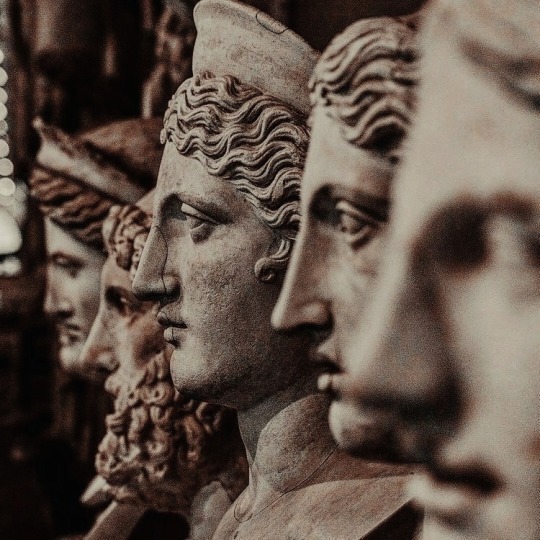
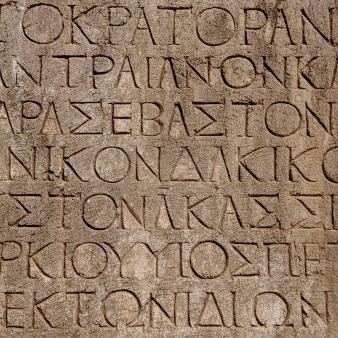


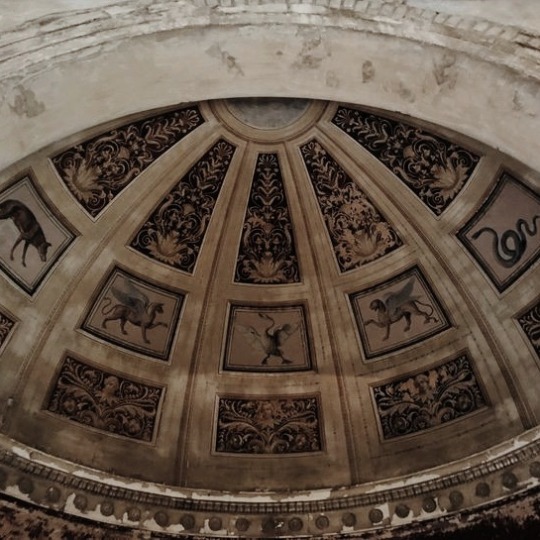
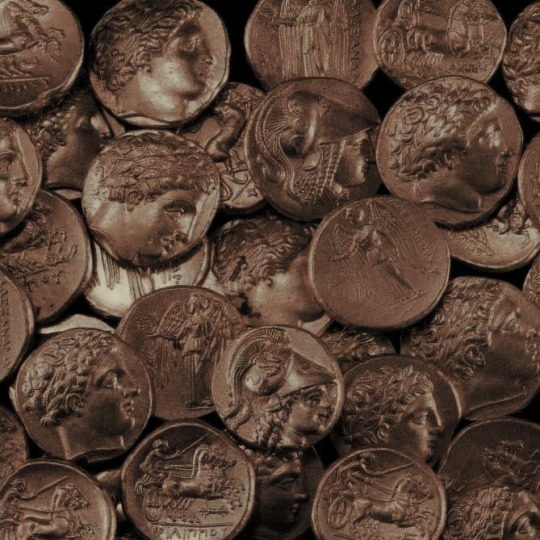
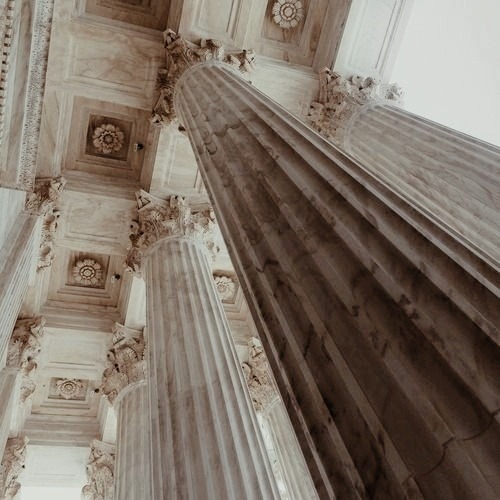
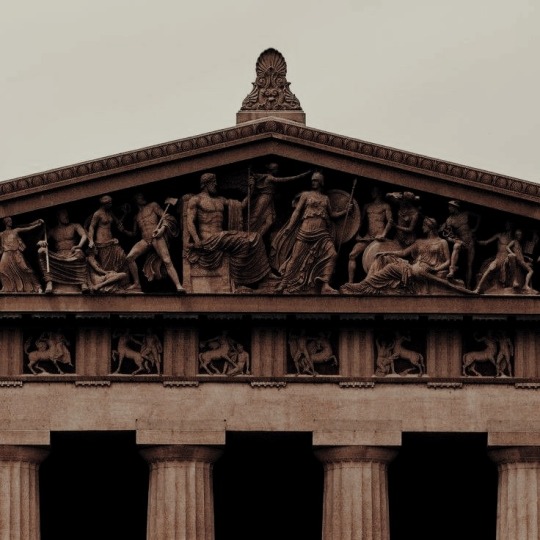
𝒌𝒍𝒆𝒊𝒐 ; 𝒈𝒐𝒅𝒅𝒆𝒔𝒔 𝒎𝒖𝒔𝒆 𝒐𝒇 𝒉𝒊𝒔𝒕𝒐𝒓𝒚 📚✒
[please reblog or like if you saved]
#kleio#clio#goddess clio#clio goddess#greek god#greek gods#greek goddess#greek god aesthetic#greek god art#greek pantheon#greek paganism#greek pagan#greek polytheism#greek polytheist#greek myth#greek myth aesthetic#greek myth art#greek mythology#greek mythology aesthetic#greek mythology art#hellenism#hellenistic#hellenic paganism#hellenic pagan#hellenic polytheism#hellenic polythiest#hellenic pantheon#hellenic gods#hellenic deities#mousai
253 notes
·
View notes